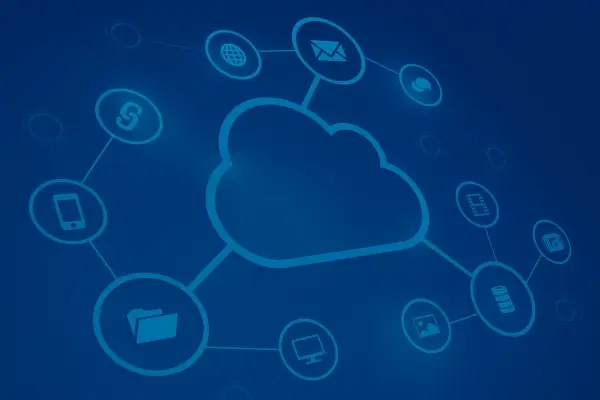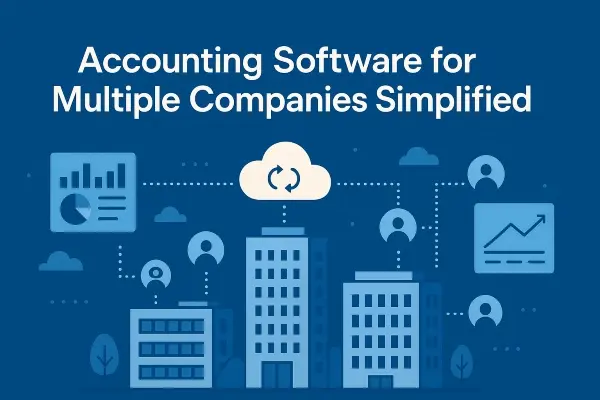Accounting Software for Multiple Businesses Simplified
Accounting software for multiple entities, often referred to as multi-company accounting, allows organizations to manage the financials of more than...
3 min read
The Milestone Team Updated on October 2, 2025

Updated 9/1/25
Cloud ERP isn’t just another business tool—it’s the cornerstone of digital transformation. The phrase gets tossed around often, but at its core digital transformation is simple: replacing outdated, disconnected systems with technology that brings everything together and adapts to how your team actually works.
Instead of juggling separate tools for accounting, operations, inventory, and people, a modern cloud ERP system unifies it all in one connected platform. And while cutting costs is an obvious benefit, the real payoff comes from the flexibility, scalability, security, and the freedom to work from anywhere.
Let’s break down the key benefits cloud ERP delivers for today’s businesses.
One of the biggest advantages of cloud ERP is that you can set it up the way that works best for your business:
SaaS (Software as a Service): Hosting, maintenance, and updates are handled for you, so you’re always running the most secure, up-to-date version.
Private Cloud: Perfect if you want more control while still taking advantage of the cloud.
On-Premise: Not ready for the cloud? You can still run ERP on your own private server and keep full control in-house.
This flexibility means your ERP can shift right along with your business as it grows and changes. And while most businesses choose the SaaS option because of its low maintenance and predictable costs, private cloud and on-premise setups are still available if you need more control.
Keeping costs under control is a priority for every business, and cloud ERP makes it easier to do just that:
No servers to buy, house, or maintain.
Subscription-based pricing that makes budgeting straightforward.
IT staff freed up to focus on meaningful projects instead of routine maintenance.
By moving to the cloud, you eliminate costly hardware, reduce the risk of surprise expenses, and gain predictable IT spending that’s easier to plan for year after year. The result is greater financial stability and the confidence to invest in growth instead of maintenance.
As your business grows, your software should keep pace without adding complexity or unexpected costs. Cloud ERP is designed to scale alongside you:
Add users easily, without expensive licensing fees—or with some ERP providers, unlimited users make it even easier to scale.
Turn on new modules and features as your needs change.
Use built-in business intelligence and analytics without bolting on extra tools.
An additional benefit of unlimited users is that your entire team can access the system without extra costs, keeping licensing simple and collaboration seamless. This kind of scalability ensures your ERP supports growth instead of holding it back.
Business doesn’t stop when you leave the office, and your ERP shouldn’t either. Cloud ERP keeps your team connected wherever work takes them:
Browser-based access without clunky VPNs.
Mobile apps that give field and remote staff real-time visibility.
Easy collaboration whether you’re at the office, job site, or on the go.
The benefit is simple—everyone has the information they need, when they need it. That kind of access keeps projects moving, improves decision-making, and gives your business the flexibility to adapt without missing a beat.
Protecting sensitive data is always a top concern, and cloud ERP is built with security at its core:
Multi-factor authentication (MFA) and role-based permissions safeguard access.
End-to-end encryption keeps both communications and stored data private.
Access controls let you decide who sees what, down to the record level.
The result is enterprise-grade protection without the burden of maintaining it yourself—often stronger than what most companies can achieve with on-premise systems.
No two businesses operate the same way, and your ERP should reflect that. Modern cloud ERP is designed with flexibility in mind:
Open architecture makes it easy to tailor workflows and fields.
Updates don’t overwrite your changes or break customizations.
Adjust the system to fit your processes without steep consultant fees or downtime.
The advantage is clear—you get software that adapts to your business instead of forcing your business to adapt to the software.
Moving to cloud ERP isn’t just about staying current—it’s about giving your business the flexibility to stay ahead. From lowering IT costs to keeping teams connected anywhere, the benefits of cloud ERP reach into every part of your operations.
If your current system is slowing you down, now’s the time to see how a connected ERP can help you scale with confidence, protect your data, and give your team the tools they need to succeed.

Accounting software for multiple entities, often referred to as multi-company accounting, allows organizations to manage the financials of more than...